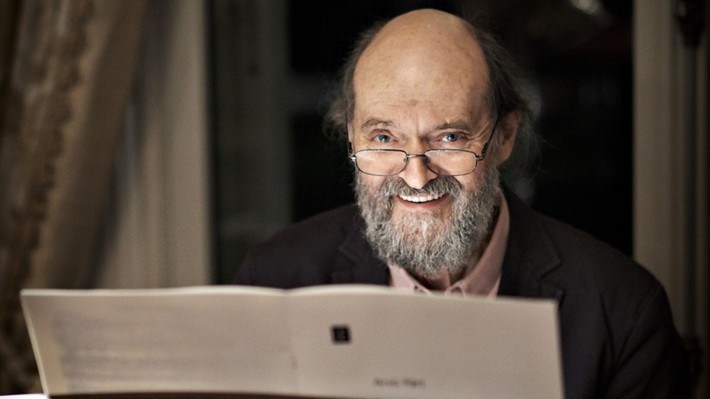Arvo Pärt, born on September 11, 1935, in Paide, Estonia, is renowned as one of the most significant composers of the late 20th and early 21st centuries. His musical journey is a fascinating exploration of faith, minimalism, and the power of simplicity.
Pärt’s early years were marked by a deep immersion in music. He began studying composition at the Tallinn Music Secondary School and later at the Tallinn Conservatory, where he was exposed to a wide range of musical styles, from Gregorian chant to modernist experimentation. However, it was his encounter with the music of Johann Sebastian Bach and the Russian Orthodox Church that would profoundly shape his artistic vision.
In the 1960s, Pärt experimented with avant-garde techniques, but he soon found himself drawn to a more stripped-down and meditative style. This transition culminated in what would become his signature sound: tintinnabuli. Inspired by the ringing of bells, tintinnabuli is characterized by its spare textures, diatonic harmonies, and a sense of timelessness.
Despite initial opposition from Soviet authorities, who found his music too religious and out of step with the prevailing socialist realism, Pärt persisted in developing his style. His breakthrough came with the composition “Für Alina” (1976), a hauntingly beautiful piano piece that introduced the world to his new aesthetic.
Throughout the 1980s and 1990s, Pärt’s reputation continued to grow, both in his native Estonia and internationally. He composed a series of masterpieces, including “Tabula Rasa” (1977), “Spiegel im Spiegel” (1978), and the “St. John Passion” (1982), which solidified his status as a leading figure in contemporary classical music.
Central to Pärt’s music is his deep spirituality. A devout member of the Russian Orthodox Church, he sees composition as a form of prayer and contemplation. His works often draw on religious texts and themes, reflecting his belief in the transcendent power of art to convey the mysteries of faith.
Pärt’s influence extends far beyond the world of classical music. His minimalist approach has resonated with a diverse range of artists, from filmmakers to pop musicians, who admire his ability to distill complex emotions into pure, crystalline melodies.
In recognition of his contributions to music, Pärt has received numerous awards and honors, including the Praemium Imperiale, the Polar Music Prize, and the Légion d’honneur. Despite his acclaim, he remains modest and humble, seeing himself as a vessel for the divine inspiration that animates his compositions.
As Arvo Pärt continues to compose into his later years, his music serves as a testament to the enduring power of simplicity, spirituality, and the search for beauty in a chaotic world. Through his work, he invites listeners to pause, reflect, and experience moments of profound grace and tranquility.


Comments are closed